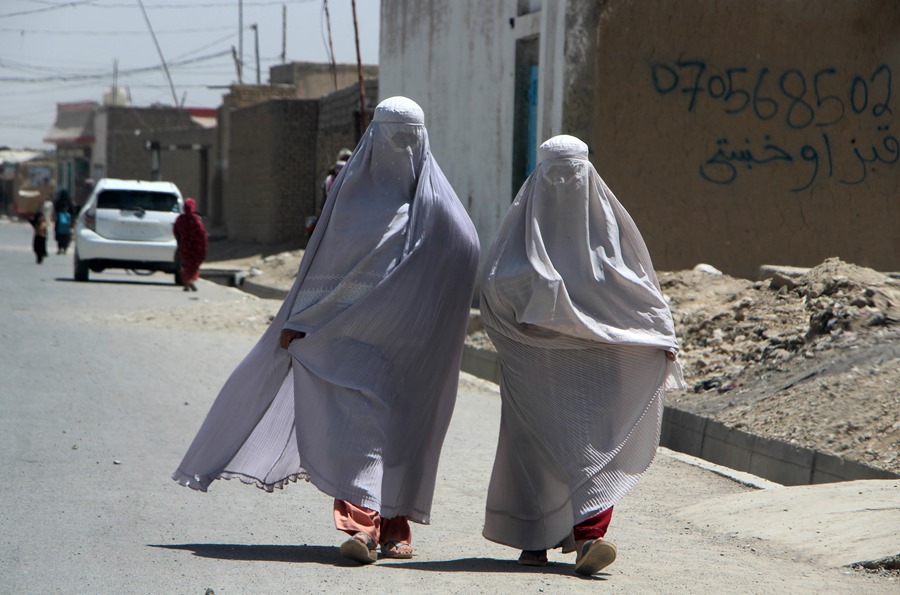The Taliban have banned women’s voices

Kabul (EFE).- Afghanistan’s de facto government has ratified a law for the promotion of virtue and the prevention of vice that requires the use of the veil to cover women’s faces, and condemns raising a woman’s voice in public as a crime against modesty, applying the harshest interpretation of Islamic law.
The law relating to the Ministry of Virtue and Vice was approved last night by the Islamic Emirate of Afghanistan, as the de facto Taliban regime is called, official Taliban sources confirmed to EFE this Friday.
The 35-article law, which Efe has been able to read, has four chapters that address issues such as the full veil or hijab for women, men’s clothing and media regulations.
“According to this law, the Ministry – for the promotion of virtue and the prevention of vice – is obliged to enjoin good and prohibit evil (…) and is also responsible for peace and brotherhood among people,” the ministry spokesman indicated. Judge Barkatullah Rasuli said in a statement published today by the Afghan channel Tolo News.
Besides, the feared ministry should “prevent people from getting involved in ethnic, linguistic and regional prejudices,” he said.
Singing, reciting, or speaking into a microphone is prohibited.
In the article that refers to hijab, the norm is established that women must cover their face and body to avoid “causing temptation,” and that women must avoid raising their voices in public, including singing, reciting, or speaking into a microphone.
It also prohibits drivers from transporting adult women without a legal male guardian.
“The implementation of Sharia and hijab is our red line. We cannot negotiate with anyone on these matters,” Mohammed Khaled Hanafi, deputy minister of morality and decency, said in a meeting with officials, according to Tolo.
As far as men are concerned

For men, Article 22 prohibits or condemns as a violation of Islamic law the wearing of a tie, trimming or cutting the beard below fist length, or combing one’s hair.
The standard contains general provisions on the media and their obligation to be Sharia-compliant, and prohibits “humiliating or insulting Muslims”, as well as images of living beings.
Syncretism with Islamic Sharia and Hanafi
According to the Taliban, the law is made in accordance with Islamic Sharia and Hanafi, one of the four main schools of Sunni Islamic jurisprudence.
Although the Taliban do not follow any specific legal school, their interpretation and application of Islamic law is largely based on the Hanafi school, for some analysts, their approach is more strict and fundamentalist.
Although many prohibitions related to women or clothing have been imposed in the country since the Taliban returned to power exactly three years ago, uniformity and severity of punishment are needed to enforce compliance with this law.
